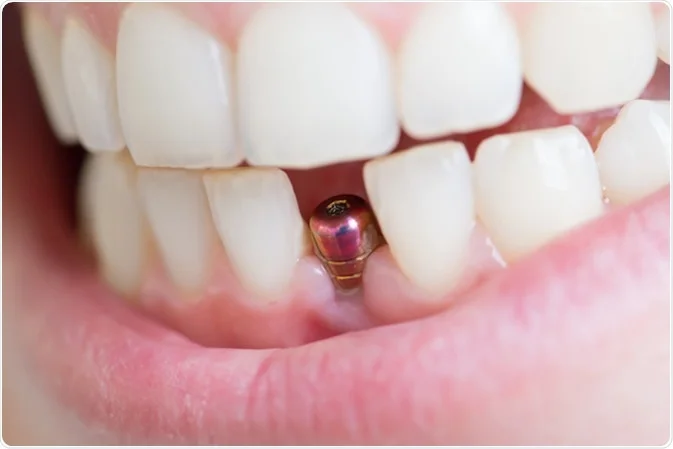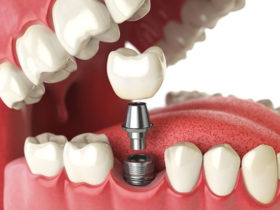Dental implants are artificial tooth roots that serve as a strong foundation for the installation of artificial teeth, either one or several at a time. Doctors can implant up to three teeth on a single implant post.
Usually, the dentist creates a personalized treatment plan for a patient who wants impaction. It is always suggested to visit a professional Lakewood orthodontics department for quality treatment that can fulfill your unique needs. Your dentist will offer treatment based on the health of your mouth and jaw bones.
Your dentist will complete this treatment in a single visit, placing the implant, abutment, and a temporary crown or bridge. Without the use of healing caps, the gum will have to be repaired through an implant setup that has already been done.
The implant, essentially a tiny titanium post, is put into the bone socket where the missing tooth was once located. The metal implant is firmly anchored in the jaw as the jawbone repairs and develops around it. It usually takes a few weeks to six months to heal.
An abutment, a tiny connector for the post to securely support your new tooth, is added to the implant once it has properly fused with the jaw bone. Your dentist creates imprints and a bite model to produce your new tooth or teeth (which captures all of your respective teeth, their arrangement, and variety). This design is used to create your new tooth or teeth. The abutment is next to a substitute tooth, known as a crown.
You won’t have to worry about the implants looking odd or different since your dentist will try to match the color of your new teeth with those of your natural teeth. The replacement teeth will feel, look, and function similarly to your natural or innate teeth because the implant is fixed into the jawbone.
Implant Method
An extensive review of the patient’s medical and dental history and a comprehensive clinical assessment of the entire mouth and the area of the missing tooth should come first in the teeth implant process. Specific x-rays should be part of the clinical examination as well. An extensive treatment plan will be developed following the examination. Afterward, dental implants are surgically implanted into the jawbone while given a local anesthetic. The quantity and quality of bone and the kind of implant used determine how long the healing process takes. The implant can support a crown, bridge, or denture once it has had enough time to recover fully.
Benefits of having teeth implants
- Sturdiness and Strength. Implants are durable and will be very useful for many years. Your dental implants may possibly last a lifetime with proper maintenance.
- Improved speech. Poor-fitting dentures can cause teeth to slip within the mouth, causing you to slur your words or mumble. Dental implants prevent slipping, so you can speak without being concerned that your teeth might shift.
- A more appealing appearance. Dental implants mimic your natural teeth in appearance and function. Additionally, they behave and look just like permanent teeth since they are made to bond with the jaw bone.
- Greater comfort. Dental implants eliminate the discomfort frequently associated with dentures since they integrate into your jaw and feel exactly like the teeth they replaced.
- A higher sense of self. Dental implants can restore your smile and boost your self-confidence significantly.
Dental insurance policies typically do not cover implants. Depending on the insurance plan and the reason for tooth loss, coverage under your medical program might be possible. Your dentist and insurance provider should be consulted in detail about your specific needs and how they relate to insurance coverage. Most dental offices will set up payment plans so that your surgery can be completed without being postponed.









